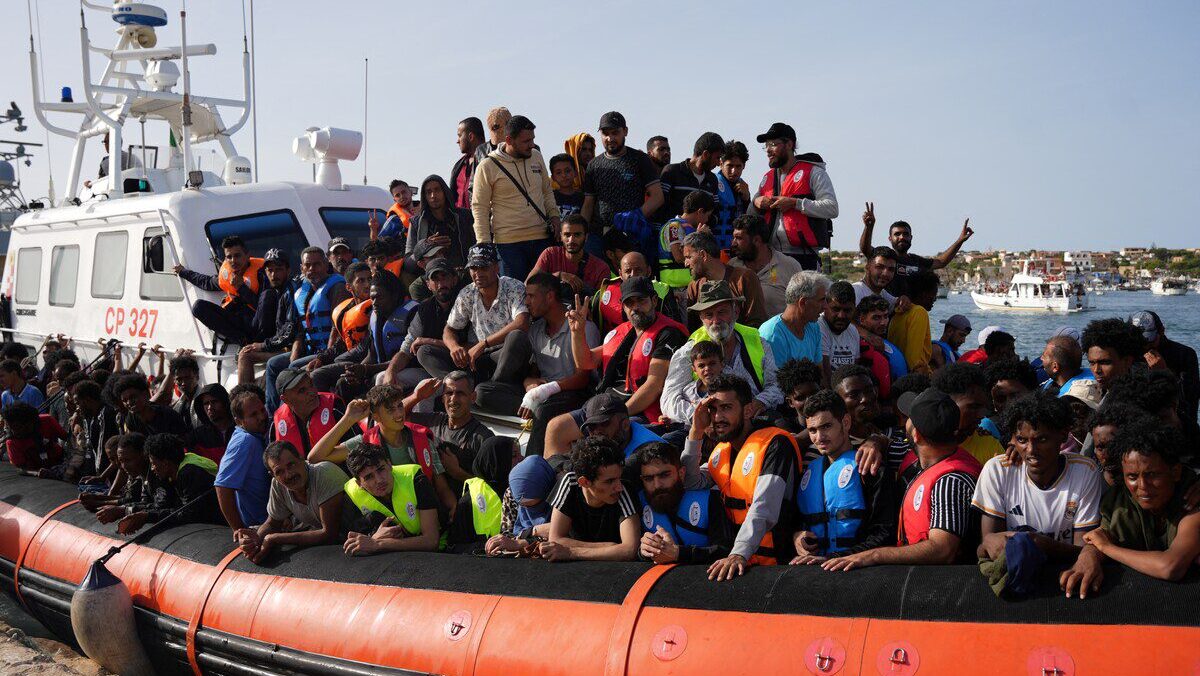
North African migrants landing on Lampedusa, Italy.
Photo: ZAKARIA ABDELKAFI / AFP
While Italy and its neighbors are struggling to curb the sudden influx of illegal arrivals through the Mediterranean, the NGO Welcome to Europe just published a new manual for migrants to help maximize their chances of being granted protection.
The handbook was written by Maldusa, a smaller, local NGO, specializing in helping migrants in Palermo and Lampedusa from an “anti-colonial and intersectional perspective,” according to its website. Welcome to Europe’s larger site—available in English, French, Arabic, and Farsi—has published numerous migrant guides before, with separate factsheets describing all major routes and EU countries.
Naturally, instead of using explicit language, the handbook merely implies certain options during its explanation of the Italian asylum rules. For instance, it makes it clear that the one thing you should wish to avoid is being classified as an economic migrant, because then you would risk being deported in short order. It points out that poverty alone is not a sufficient reason to be granted asylum—leading a reader to surmise that a different reason ought to be given to authorities.
Of course, NGO aid workers who ‘rescue’ migrants from the sea give far more precise verbal instructions. One such group was caught last week flat-out telling migrants picked up from Tunisia to say they are coming from Libya instead—the only country in the region that would qualify them as refugees. They were also told to hide their true countries of origin, destroy their documents, and delete the pictures from their trip.
The other crucial fact the handbook stresses is that minors are automatically granted asylum and cannot be expelled. It explains that one only needs to declare oneself to be under 18, and—in case of missing documents—is usually given “the benefit of the doubt” during the lengthy age assessment procedure, which usually takes months. There’s good reason to believe most migrants in their 20s are quite aware of this fact since over 70% of all ‘minor’ refugees registered in Italy self-declare as 17 years old.
Furthermore, the guide also makes clear that it’s a lot harder to deport entire families under the law and authorities cannot separate closely related family members. However, as it points out, extended family members, such as uncles, aunts, nephews, or cousins, do not qualify and can be separated—implying that migrants should say they are parents or siblings instead.
At several points, the handbook also advises migrants to seek the help of legal representatives as soon as they arrive and provides useful phone numbers of several NGOs to call with any problems.
